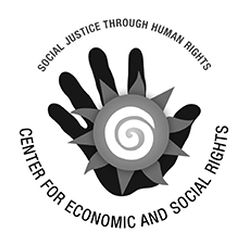- Reclaiming policies for the public
- Preface
- Overview 1: Reclaiming the public (policy) space for the SDGs
- Overview 2: Stalled implementation at national level
- Overview 3: Implementing the 2030 Agenda requires acknowledging extraterritorial obligations
- 1. Pro-poor or pro-corporations?
- Box: Measuring extreme poverty: who decides what?
- 2. Facilitating corporate capture or investing in small-scale sustainable agriculture and agroecology?
- Box: Agribusiness mega-mergers expose need for UN Competition Convention
- 3. Corporate influence on the global health agenda
- Box: Healthcare is not a commodity but a public good
- 4. Cashing in on SDG 4
- Box: The primary education conundrum in Africa
- 5. Corporate power: a risky threat looming over the fulfilment of women’s human rights
- 6. Ensuring just and sustainable water infrastructure
- Box: Water in the MENA region: privatization amid scarcity
- Box: Remunicipalization: putting water back into public hands
- 7. Peoples’ power or how to ensure access to affordable, reliable, sustainable and modern energy for all
- 8. Decent work requires decent public policies
- 9. Industrialization, inequality and sustainability
- Box: The new generation of PPPs in infrastructure – meeting the needs of institutional investors
- 10. Squeezing the State: corporate influence over tax policy and the repercussions for national and global inequality
- Box: Consolidating misery or catalyzing opportunity?
- 11. Commodification over community: financialization of the housing sector and its threat to SDG 11 and the right to housing
- Box: Reclaiming OUR public transport
- Box: Four critical steps to operationalize the New Urban Agenda’s transformative commitment to decent work and inclusive and sustainable cities (SDG 11)
- Box: The “Aerotropolis” phenomenon – high risk development thwarting SDGs
- 12. Binding rules on business and human rights – a critical prerequisite to ensure sustainable consumption and production patterns
- Box: Can the (interlinked) SDGs curtail the extractive industries?
- 13. The pivot point: realizing Sustainable Development Goals by ending corporate capture of climate policy
- 14. The role of transnational corporations and extractive industries in seabed mining, and the impacts on oceans health and food security
- 15. Trends in the privatization and corporate capture of biodiversity
- Box: Corporate capture of agricultural biodiversity threatens the future we want
- 16. Progressive implementation of the 2030 Agenda depends on achieving sustainable peace
- Box: Private Military and Security Companies – obstacle to the realization of SDG 16
- Box: Whistleblower protection – how serious are governments to address corruption
- 17. Means of implementation or means of appropriation?
- Box: Leveraging corruption – how World Bank funds ended up destabilizing young democracies in Latin America

















